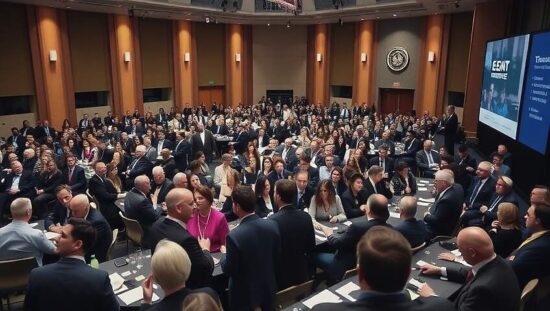Negotiations at the COP30 climate conference in Belém have extended beyond their scheduled close, signaling a significant impasse among participating nations. The conference, initially slated to conclude at 18:00 local time, remains in session as delegates struggle to reach a consensus on a final declaration. This delay, while common in UN climate summits, is compounded by a fire that disrupted proceedings earlier this week, forcing a substantial pause in discussions.
A revised draft of the concluding declaration, released overnight, has drawn widespread criticism for substantial dilutions compared to previous versions. The text, formulated in response to feedback from the nearly 200 participating states, has been deemed insufficient by a coalition of approximately 30 nations, including Germany. This group asserted that the proposed declaration lacks a concrete plan for a “just, orderly and balanced transition away from fossil fuels” falling significantly short of the minimum requirements for a credible outcome from the COP30 summit.
EU Climate Commissioner Wopke Hoekstra delivered a particularly scathing assessment of the revised draft. “Look at the text” he stated bluntly. “There is nothing of science, no global stocktake, no transition. Instead, weakness. Weakness in mitigation and, moreover, a clear violation of last year’s agreement on the New Collective Quantified Goal (NCQG)”. The NCQG, crucial for providing financial support to developing nations in their climate action efforts, represents a key priority for nations in the Global South. Hoekstra concluded with a firm declaration: “Under no circumstances will we accept this.
The deadlock exposes a deepening rift between developed and developing nations and raises serious questions regarding the ambition and practicality of global climate action. The failure to achieve consensus reflects broader disagreements over responsibility and the pace of the transition away from fossil fuels, potentially undermining the conference’s credibility and jeopardizing future climate agreements. Whether the ongoing negotiations can bridge the widening gap remains uncertain as the conference enters its extended session.





